Keep Your Family and Property Safe From Disaster
Hurricanes are one of the most destructive events Mother Nature can unleash against your property. From broken windows and falling trees to storm surges and flooding, these behemoths can devastate almost any building, big or small.
Even if you don’t live in an area prone to hurricanes, it pays to be prepared. After all, hurricanes are expensive: per the National Oceanic and Atmospheric Administration (NOAA), there were 28 weather disasters in the U.S. in 2018 and 2019 that resulted in losses exceeding $1 billion. What’s more, recent studies have indicated that climate change is making hurricanes stronger and more destructive than in the past.
Use the below six tips to prepare your property for hurricane season. Many of these tips can also be applied to other disaster events such as floods and earthquakes. Please share this post with friends and family so they can also stay abreast of oncoming emergency events.
1. Make a Plan
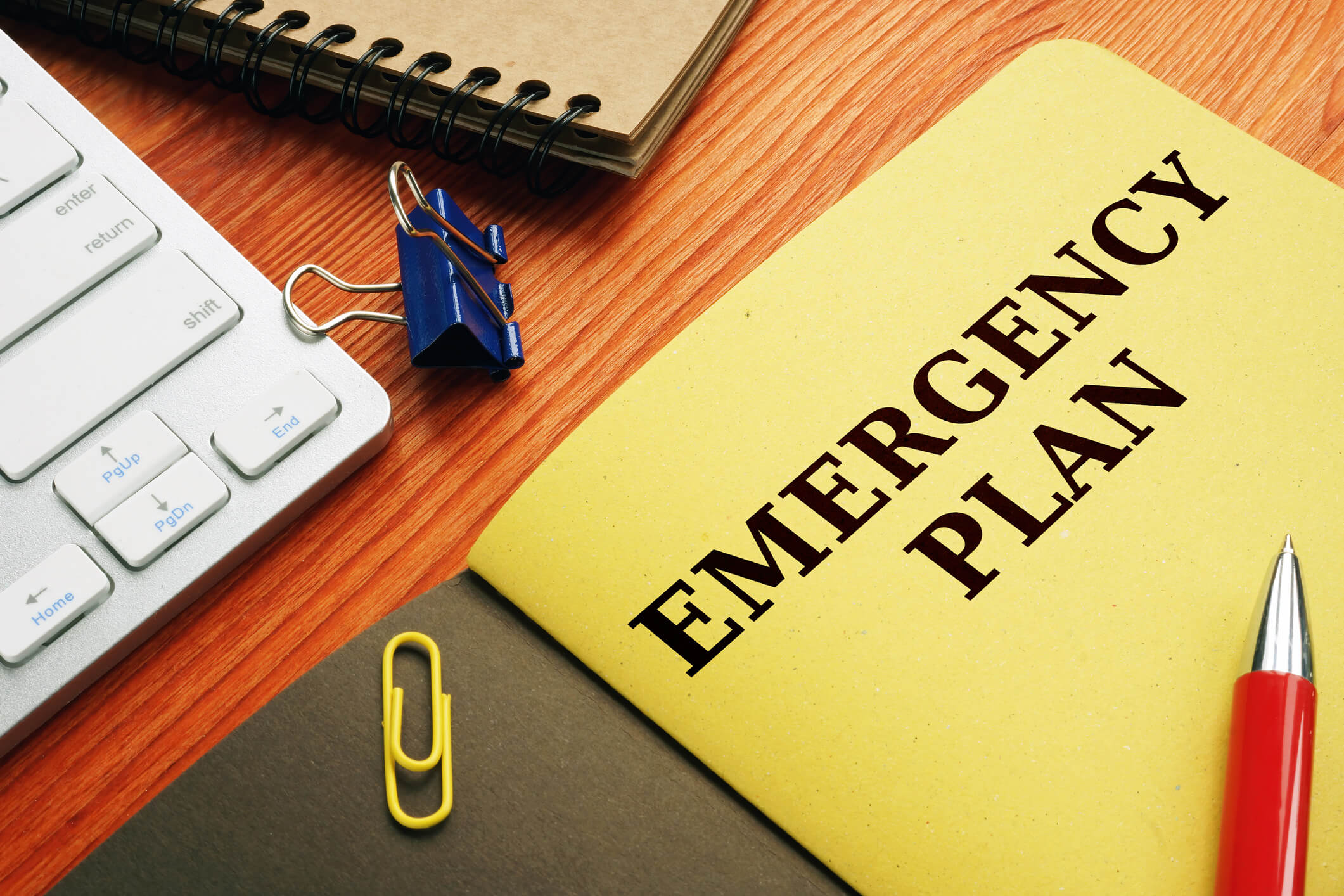
It’s common for large corporations to have a Crisis Communication Plan that reduces panic and enforces best safety practices during emergencies. But even families and small businesses should take the time to write such a plan so that all parties stay coordinated when disaster looms.
Select a common meeting place in the event of separation, and set yourself a checklist of reminders such as:
- Turn off main power, propane tanks and appliances
- Check disaster supply kit and restock as needed
- Ensure vehicle’s gas tank is full
- Bring in anything outdoors that can be picked up by wind (signs, chairs, bicycles, etc.)
- Listen to radio or TV for updates on the storm’s progress
Writing these things down and communicating them to others will increase peace of mind, improve morale and help everyone stay prepared!
2. Create a Hurricane Preparedness Kit
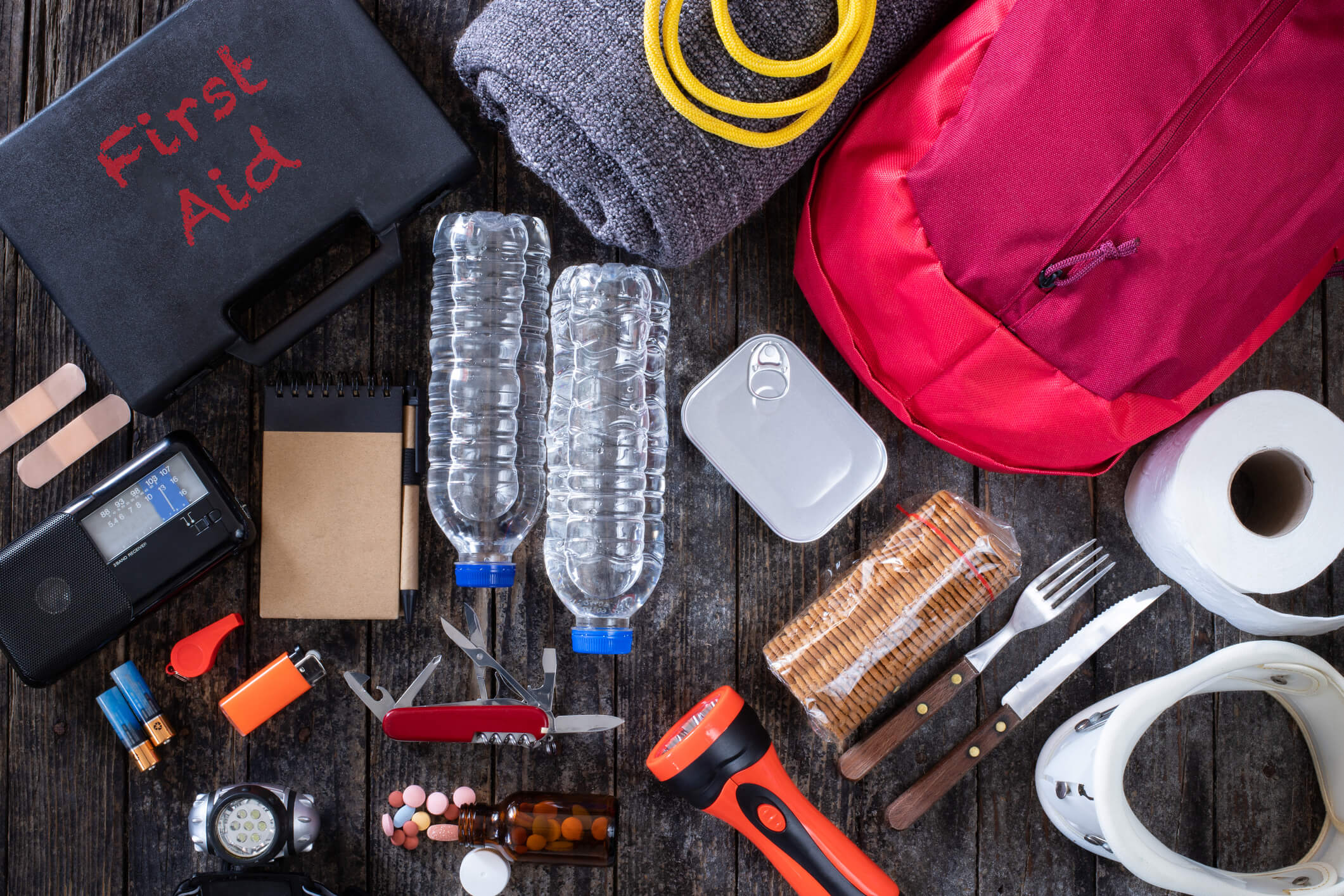
For any extreme weather event both FEMA and most local authorities recommend you stock an emergency preparedness kit. This kit should include basic items your household or property would need in the event of a hurricane or other disaster.
Keep in mind that you may need to survive on your own for several days before help arrives. Think about how much food and water you would need for every person to survive in such a time frame.
Look at the list below, but also consider what unique needs your own family or business may have. For example, if you have young children you may want to add toys or coloring books to the list; if seniors are present there may be specific medication requirements.
What should I put in a hurricane preparedness kit?
A basic emergency kit should include:
- Water
- Non-perishable food (canned goods, dry pasta, etc.)
- Flashlight
- Batteries
- First aid kit
- Blankets
- Clothing
- Personal hygiene items
- Portable radio
- Maps of the local area
- Tools (such as wrench or pliers to turn off utilities)
- Gas for your generator
- Whistle (to signal for help)
- Can opener (for opening canned goods)
- Extra food and water for pets
3. Safeguard Important Documents
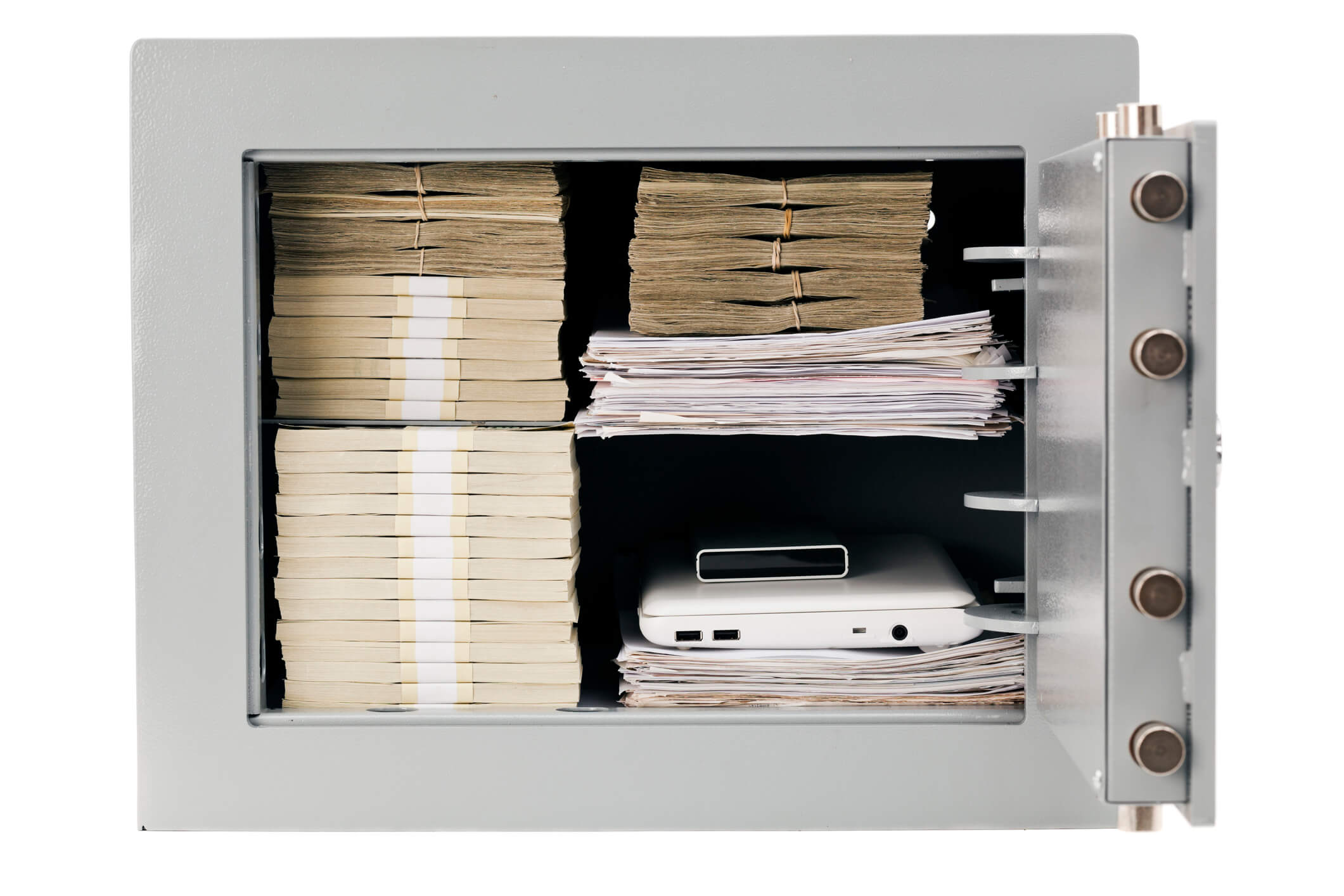
Paper documents are fragile and easy to lose in the chaos of an emergency event. Make sure they’re safely secured in a bolted safe or deposit box at least five feet above the ground. Documents might include:
- Birth certificate
- Marriage certificate
- Proof of address
- Deed or lease to home
- Insurance policies
- Bank account records
- Tax documents
- Medication list
4. Review Your Insurance Policies

Make sure you understand your insurance coverage in the event of a hurricane. Most homeowner’s insurance policies cover structural damages from hurricanes and windstorms but may list exclusions such as flooding. Since flooding is such a common byproduct of hurricanes, you may require an additional insurance policy, especially if you live in an area prone to flooding. Sewer backup is another common exclusion that may require this.
Look carefully at the amount your insurance company will cover for hurricane damage and make sure it’s enough to rebuild your home. Be mindful of exterior threats such as large trees or telephone poles that could damage your roof or walls. Structural repairs could be costly if not covered by your insurance.
Make sure your policy covers additional living expenses in case you stay in a hotel or other accommodation. You should also understand your hurricane deductible and ensure you have money set aside to cover this deductible in the event of a hurricane.
Take the time to audit and photograph all the possessions in your house. This allows you to understand if your insurance policy adequately covers the cost of repurchasing furniture, appliances and other possessions. However, this will also create proof of loss, speeding up the insurance claim process and helping you deduct losses from your federal income taxes.
5. Install Storm Shutters
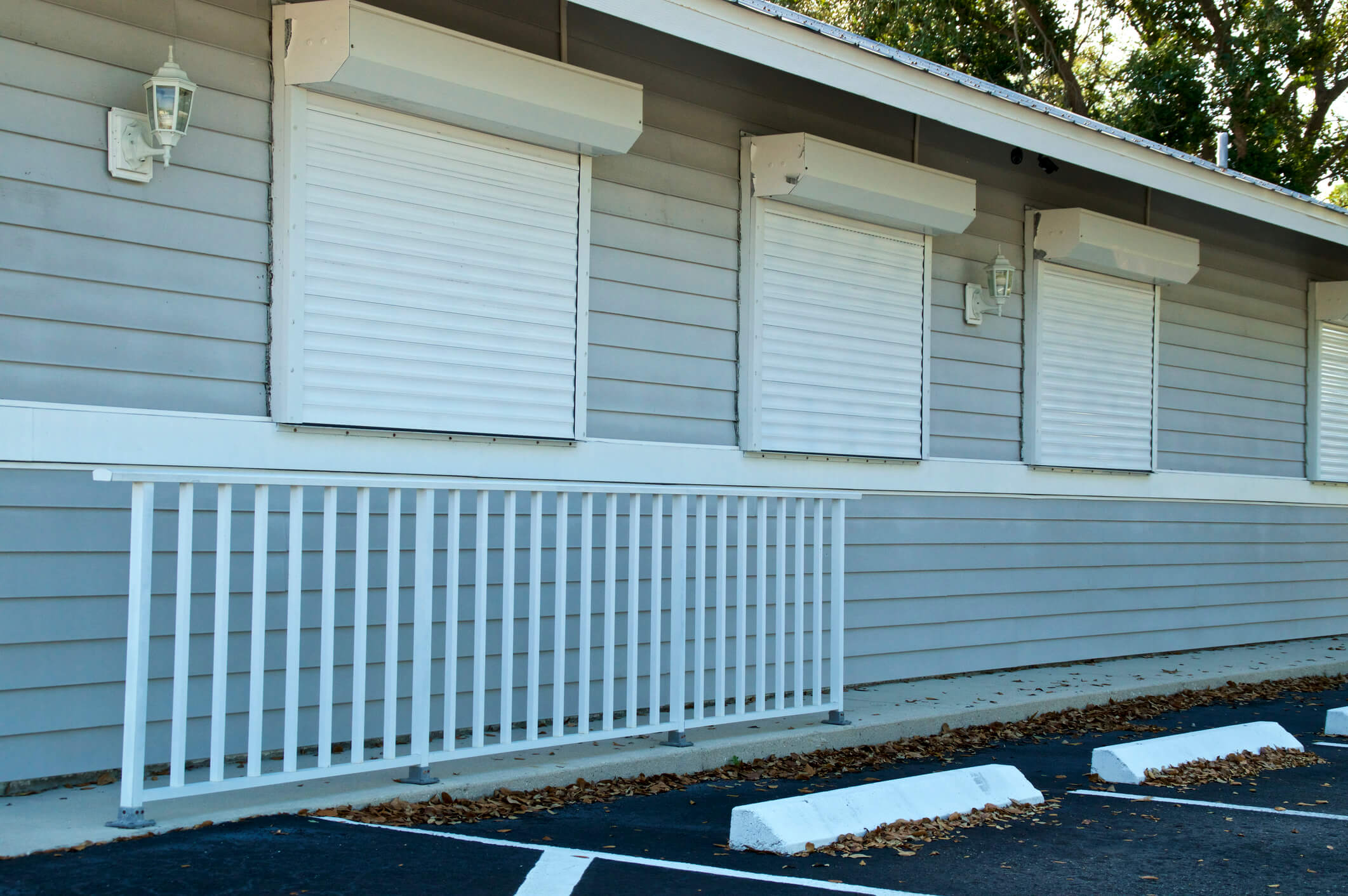
Windows are one of the most vulnerable parts of your house. During hurricane situations, it’s common to see businesses nailing plywood to their windows last-minute. However, while plywood is cost-effective, it comes with several drawbacks:
- The wood will become wet and rot over time, making it viable only for one storm.
- You’ll need to install the shutters yourself. This takes time and may require the use of a ladder, which can be dangerous.
Instead, we recommend having a professional company install impact-resistant shutters or storm panels well in advance of inclement weather. These should be made from metal such as steel or aluminum, which are much more durable than plywood. They can be built to last for multiple storms and are easy to remove after the storm has passed, so they can be stored away during calmer weather patterns.
Even if your property has hurricane-rated windows, a second layer of protection will provide peace of mind when disaster comes knocking.
How to Protect Your Roof in a Hurricane

During
6. Secure the Exterior
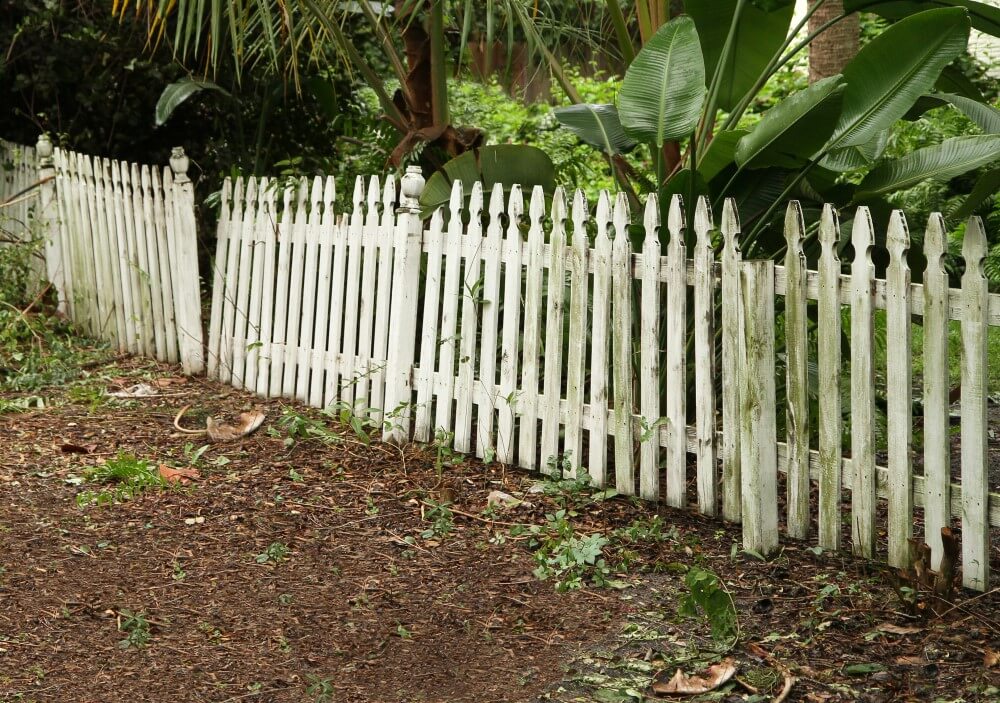
Check the outside of your property for potential hazards. Secure fixtures such as fences and hose bibs, and make sure your shed, lawnmower, grill and other outdoor possessions are securely anchored (or store them indoors if space allows.)
Keep in mind that 100 mph winds are much stronger than you’d think. An outdoor bench may appear unshakeable during regular windstorms but be tossed around like a plastic bag once a Category 4 or 5 hurricane rolls in.
You’ll also want to trim trees and branches, especially those within ten feet of your property. Clean out your gutters and check the foundation of your house for any cracks or signs of distress. Fixing these problems now could reduce larger destruction later.
How to Protect Your Roof in a Hurricane

During a hurricane your roof is extremely vulnerable to property damage. Even if there are no large trees or power lines nearby, high-speed winds and heavy rains can damage the integrity of the roof and lead to leaks and worse. A few ways you can protect your roof in a hurricane include:
- Have a home inspector or roof inspector inspect the roof for damage or weak spots.
- Nail down (or replace) loose shingles.
- Clean out the gutters to reduce the risk of blockages and leaks.
- Replace rusty or weak screws with new ones.
- Use roof straps or construction adhesive to reinforce rafters and weak spots.
- Install hurricane clips to reduce the risk of your roof being ripped away from the main house.
When Disaster Strikes…Call On STOP Restoration For Your Damage Restoration Needs
Whether it's storm damage or otherwise, in the wake of a disaster you may be feeling traumatized and overwhelmed by all that must be done. STOP Restoration’s professional technicians provide a written action plan and a consultative approach so you can return to normal as soon as possible. We work with all insurers and use the latest industry tools and technology to bring your property back to full health.
Call (844) 500-4775 today to speak to one of our team members and get your questions answered.